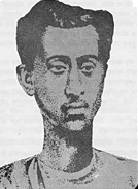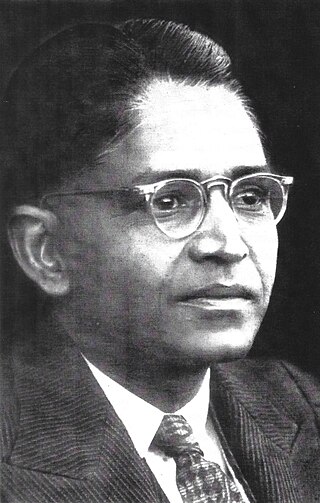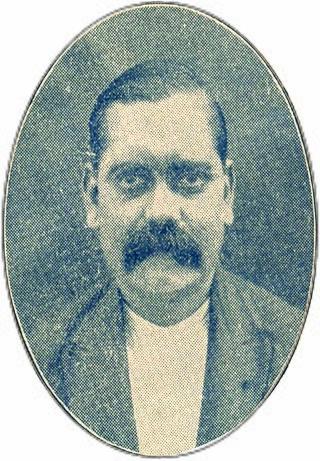
Patience Cooper was an Anglo-Indian actress, and one of the early superstars of Bollywood. She was the daughter of Phoebe Stella Gamble (born in Calcutta in 1881; daughter of John Frederick Gamble and Phoebe Stella Clement whose mother was Armenian and James Alfred Cooper. An Anglo-Indian born in Howrah, West Bengal, and baptised on 30 May 1905, Cooper had a successful career in both silent and sound films. She is credited with the first double roles of Indian cinema—as twin sisters in Patni Prataap and as mother and daughter in Kashmiri Sundari, even though earlier in 1917, actor Anna Salunke had played roles of both the male lead character Ram and the female lead character Seeta in the film Lanka Dahan.

Hiralal Sen is generally considered one of India's first filmmakers. In 1903, he filmed the popular Alibaba and Forty Thieves, the first full-length Indian film. A noted photographer, he is also credited with creating India's first advertising films and quite possibly India's first political film. A fire in 1917 destroyed all of his films.

Dhirendra Nath Ganguly, better known as Dhiren Ganguly or D.G, was a Dadasaheb Phalke Award-winning and Padma Bhushan recipient film entrepreneur/actor/director of Bengali Cinema. He had set up a number of film production companies: Indo British Film company, British Dominion Films, Lotus Film Company. Later, he directed films for New Theatres. He produced many movies in the comedy genre. He was born in Calcutta and died in the same city.
Jamai Shashthi is a 1931 Bengali short film directed by Amar Choudhury and produced by Madan Theatre Limited. It is a milestone of Bengali cinema as it was the first Bengali short film as a talkie. It was released at Crown Cinema Hall in Calcutta on 11 April 1931, in the same year as Alam Ara, the first Indian talkie.

Jamshedji Framji, professionally known as J. F. & Madan, was an Indian theatre and film magnate who was one of the pioneers of film production in India, an early exhibitor, distributor and producer of films and plays. He accumulated his wealth on the Parsi theatre district scene in Bombay in the 1890s where he owned two theatre companies. He moved to Calcutta in 1902 where he founded Elphinstone Bioscope Company, and began producing and exhibiting silent movies including Jyotish Sarkar's Bengal Partition Movement in 1905. He expanded his empire considerably after acquiring rights to Pathé Frères films. He produced Satyavadi Raja Harishchandra in 1917 and Bilwamangal in 1919. Satyavadi Raja Harishchandra was the first feature film to be shot in Calcutta. Elphinstone merged into Madan Theatres Limited in 1919 which brought adapted many of Bengali's most popular literary works to the stage. Madan Theatres was a major force in Indian theatre throughout the 1920s and 1930s.

Bengali cinema, also known as Tollywood, is an Indian film industry of Bengali-language motion pictures. It is based in the Tollygunge region of Kolkata, West Bengal, India. The origins of the nickname Tollywood, a portmanteau of the words Tollygunge and Hollywood, dates back to 1932. It was a historically important film industry, at one time the centre of Indian film production. The Bengali film industry is known for producing many of Indian cinema's most critically acclaimed global Parallel Cinema and art films, with several of its filmmakers gaining prominence at the Indian National Film Awards as well as international acclaim.
Premankur Atorthy (1890–1964) was an Indian novelist, journalist, and film director. He was involved in Hindi and Bengali cinema.

Satyawadi Raja Harishchandra is a 1917 silent black and white Indian film based on Hindu mythology, directed by Rustomji Dhotiwala. It was produced by J. F. Madan's Elphinstone Bioscope. Credited as the first remake in Indian cinema, the film is a remake of the first Indian feature film, Raja Harishchandra (1913) and was also inspired by an Urdu language drama, Harishchandra. The film is based on the mythological story of a Hindu King Harishchandra, the 36th king of the Solar Dynasty, who donated his entire kingdom and sold himself and his family to keep the promise given to the sage Vishvamitra in the dream. It is also the first feature film made in Calcutta. The intertitles used in the film were in Bengali language as the film was a silent film. The film was released on 24 March 1917 at New Tent Maidan, Calcutta.

The cinema of Bihar, a state in eastern India, primarily consists of films in the Bhojpuri language. Bihar also has smaller Maithili- and Magahi-language film industries. Cinema in the state began during the early 20th century.

Amar Choudhury was an Indian film actor, director, editor and writer. He wrote and directed Jamai Shashthi in 1931 produced by Madan Theatre Limited, credited as the first Bengali talkie. He acted in this film too as in all of the films written and directed by him. It was released on 11 April 1931 at Crown Cinema Hall in Calcutta in the same year as Alam Ara, the first Indian talkie was released.

Chaplin Cinema was the oldest single screen movie theatre in Kolkata, West Bengal, India. It was located in 5/1 Chowringhee Place. In 1907 Jamshedji Framji Madan opened this cinema in India.
Rishir Prem is a 1931 Bengali film directed by Jyotish Bandyopadhyay, produced by Madan Theatre Limited. It was released on 3 October 1931 at Crown Cinema Hall in Calcutta.

Homi Master (?–1949) was an actor-director of early Indian cinema. His work extended from the silent era to the talkie era and up to his death. He produced his best films for Kohinoor Film Company and he has been referred to as "silent cinema's most successful film-maker".
J.J. Madan was a theater business owner and film director in India. He was the third son of Indian film magnate Jamshedji Framji Madan who started Madan Theatres Ltd. in 1919. After his father died in 1923, J. J. Madan took over the management of Madan Theatres.

Hiralal is a Bengali-language biopic movie which is directed by Arun Roy and produced be Easel Movies. It is starring Kinjal Nanda, Saswata Chatterjee, Anuska Chakraborty, Shankar Chakraborty, Arna Mukhopadhyay, Tannishtha Biswas, Partha Sinha, Adhikary Koushik and Kharaj Mukherjee. The film was released on 5 March 2021.
Jamshedji is both a given name and a surname. Notable people with the name include:










